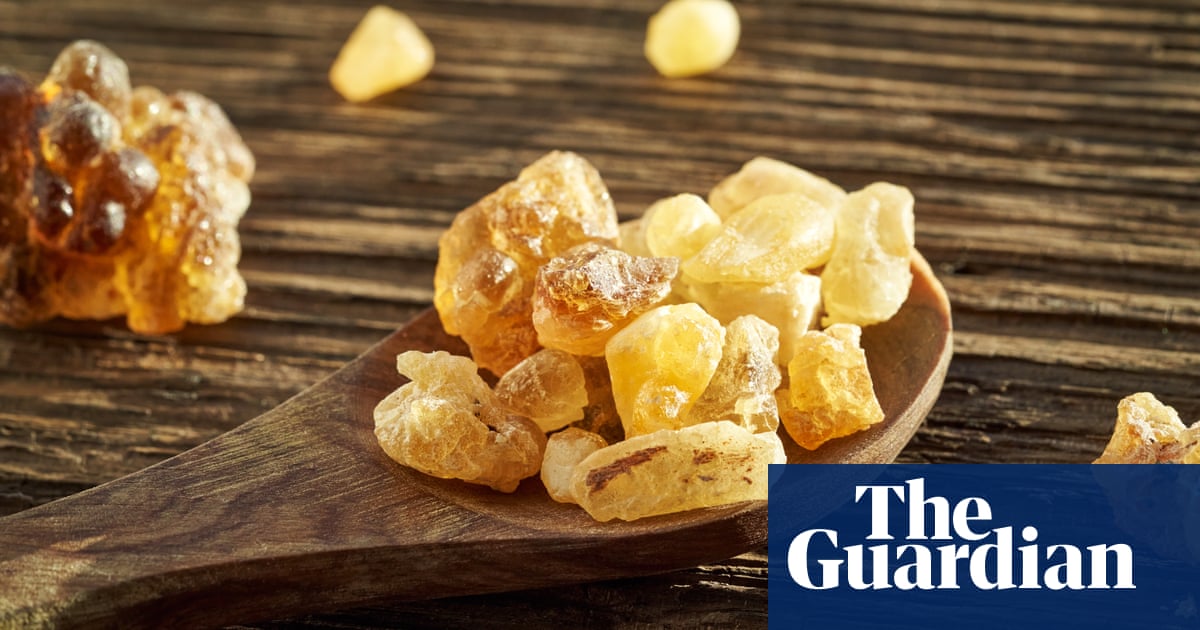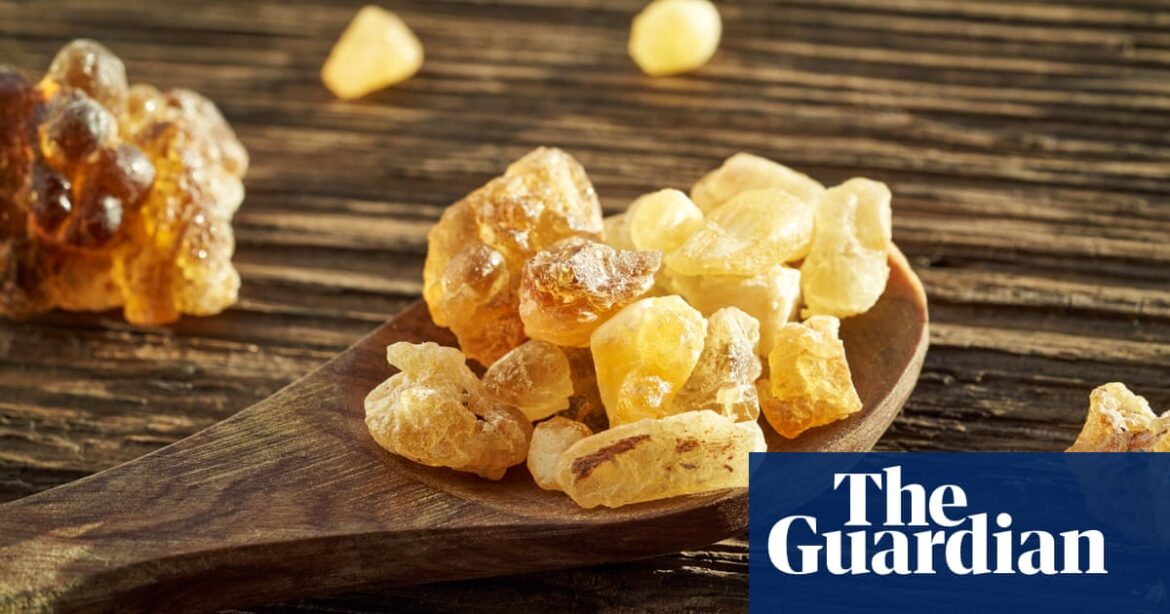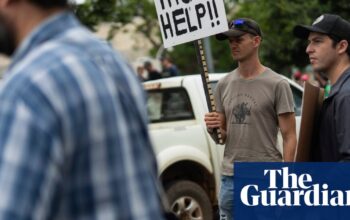
An investigation into the abuse of women working to supply frankincense to a leading US essential oils brand built on ethical sourcing has left workers unpaid and frightened, with some saying they were told to change their stories “or face the consequences”.
Last year doTERRA, which sells essential oils and other wellness products to a mostly female customer base, launched an investigation into its frankincense supplier in Somaliland after reporting by the Fuller Project uncovered allegations of serious abuses, including sexual harassment and assault. Many women hired as frankincense sorters said they were routinely underpaid and faced harsh working conditions that had impacted their health.
DoTERRA, which generates more than $2bn in annual sales, has built its brand on a promise of ethical sourcing. “Every oil sold by doTERRA is responsibly and sustainably sourced,” the company says on its website. “We make it a top priority to protect the environment during the production process and provide fair treatment of all harvesters and growers.”
The investigation commissioned by doTERRA into the abuse allegations “revealed that the supplier did not meet the high standards we expected of them”, according to a statement from the company, which has since severed ties with the local supplier, Asli Maydi. But some of the women who say they worked for Asli Maydi and its owner, Barkhad Hassan, say doTERRA’s actions have not only failed to deliver justice for them, but have placed them in further danger from their former employer.
“We agreed to take part in the investigation and interviews believing that our interviews would be kept strictly confidential and secured as promised,” wrote Saynab Faarax Diiriye, who says she represents a group of more than 70 female frankincense sorters in Togdheer, a region in central Somaliland. She says she later found out that Hassan had learned of those confidential interviews, and that he began “asking [his associates] for information about us”. His associates also reached out, the women say. “They told us to record another interview and change our story or face the consequences. They told us they had our interviews and images,” said Diiriye.
Sara George, the lawyer hired by doTERRA to investigate, denied these allegations in an email to the Fuller Project. “No interviews were leaked by the independent investigation,” she wrote. “No male or female witness has ever alleged to the independent investigation that their own interview has been leaked to Barkhad Hassan and his associates.” One local investigator was assaulted, George says, and his laptop and cellphone, ostensibly containing interview notes or recordings, were stolen but never recovered. All witnesses he had spoken with were contacted “to ascertain whether they had been threatened or harmed and to encourage them to report any approaches to the police”, George told the Fuller Project. She says these witnesses were also offered legal assistance at doTERRA’s expense.
Diiriye said she and other women reported these incidents to George, who works for the global law firm Sidley Austin, and that she promised them security. “We also need to make sure we put in place protections, security, whatever is necessary to protect anyone who we think Barkhad Hassan might target,” George told two of the women, according to recordings of their phone calls heard by the Fuller Project. “Nothing else is more important than that right now.”
But this promise never materialized, according to Diiriye and Amina Souleiman, whose British-based charity Horn of Africa has advocated for the victims. Instead, the Togdheer sorters met in December to make their own safety arrangements, including hiring security guards, moving offices, relocating vulnerable women and girls to new homes, and ensuring everyone has access to phones.
“The women who have diligently participated in the investigation have faced a lot of danger,” Diiriye and fellow sorter Muna Ahmed Ali wrote in an email to George seen by the Fuller Project. “The situation we are in today is very scary.”
In response, George told the Fuller Project that one of the interviewees had requested more than $70,000 in cash payments to cover security-related expenses, but that “these claims are likely to be, at best, opportunistic.” This interviewee said she was approached by the wife of an Asli Maydi foreman but “did not represent that there had been any threats of physical violence against her or anyone else”, George told the Fuller Project. George says this interviewee was connected with “a local lawyer who could assist her to report the matter to the police”.
George’s investigation found that some workers’ hours exceeded those specified in doTERRA’s code of conduct; some worksites did not have access to safe, clean water and sanitation; and that working conditions led to workplace injuries, including allergies, respiratory issues and eye problems. Although doTERRA “paid considerably more than the then market value” for the frankincense resin it sourced through Asli Maydi, some female sorters “were likely to have been paid an amount insufficient to meet their basic needs”, George wrote in an email to the Fuller Project.
After the Fuller Project’s story was published, a group of frankincense sorters formed their own collective based in Erigavo in Somaliland, a self-declared republic in the Horn of Africa where women face high levels of discrimination. They named it Beeyo Maal, which means the “milkers of frankincense”. Many of the women who had formerly toiled for Asli Maydi now had the opportunity to hold positions of power for the first time. Crucially, it has given them power to earn their own money after years at the mercy of an employer who they say routinely underpaid them.
Working for doTERRA, the women said they made about 10,000 Somaliland shillings, or slightly more than $1 per day, for sorting 6lb of resin. Though this rate was typical for the region, a fair wage would be closer to $15 per day, Souleiman said. Now, as part of the collective, the women pay themselves an average of $7.50 to $10 per day, she says. On more successful days, they can make more than $20.
In conversations with the investigation participants, George said doTERRA had banned “all future contracts with Barkhad Hassan” after seeing several text messages in which Hassan “discusses what really happened to the money” doTERRA gave him to pay frankincense sorters and harvesters, according to the call recordings.
George told the women that cutting ties with Hassan and Asli Maydi will “send a message” to anyone who works with doTERRA in the future. “If you treat your workers badly, if you don’t make fair and on-time payments, there are consequences,” George told the women, according to the phone recordings. “There is nothing that makes rich men sit up and listen [more] than making them poor men.”
“We cannot ever have what has happened happen again,” George told the women by phone.
And yet more than a year after doTERRA promised it would investigate, former Asli Maydi workers have not been paid their missing wages, Souleiman and Diiriye say. The women discussed with George their hopes that doTERRA would pay them their missing wages, but she told them that doTERRA had “no records” of who worked for Asli Maydi, according to the phone recordings.
“We do not know what exactly everybody was paid,” George told them on a recorded call. “Throwing money out at anybody who turns up and says, ‘I was an Asli Maydi worker, I was underpaid,’ when we have no records and no responsibility … we will end up paying the wrong people.”
Diiriye and George were last in touch in March, but since then, “they [doTERRA] have not made any amends,” Diiriye said in a WhatsApp message.
A doTERRA spokesperson said the company was “disappointed to discover” that Asli Maydi was not making fair and on-time payments. When asked if doTERRA had paid harvesters and sorters back wages, George told the Fuller Project: “DoTERRA has never had any employees in Somaliland and therefore it has paid no wages.”
A doTERRA spokesperson said the company had not resumed operations in Somaliland. In an April statement, doTERRA said it was working to transfer ownership of a hospital in Erigavo that it opened in 2021 through its corporate foundation to the Somaliland health ministry, alleging that Hassan had forced employees and patients to vacate the building. DoTERRA’s spokesperson said it supports a legal case the ministry is pursuing to assume full ownership of the hospital.
George told the women by phone that when she told Emily Wright, doTERRA’s former president and the company’s only female co-founder, “just how bad” her findings were, Wright “cried, because … it undermined everything that she thought she had been doing for years”.
Frankincense survives deep cuts, bleeding resin. It withstands unforgiving heat on little water. It grows out of rocks, suspended on outcroppings over steep cliffs, its knobby branches reaching skyward. Frankincense trees are resilient and like their beloved trees, so are the women who sell frankincense.
The work is hard – women still walk long distances to work, the pay is minimal, and the sorting is laborious. But now they rejoice in the feeling of owning something. “At least this is ours,” said Luul Siciid Jaamac, Beeyo Maal’s chairperson and a former Asli Maydi sorter.
Approximately a year after it was set up, the Beeyo Maal collective has buyers around the world, including in the US, the UK and New Zealand.
None of these women sorters participated in the Sidley Austin investigation, says Souleiman, whose charity has supported Beeyo Maal. Two of the women reached out to a doTERRA-supported workers rights’ hotline to ask questions, including whether their information would be kept confidential. They did not get a satisfactory answer, Souleiman says.
Several of the sorters involved say they were never contacted. “They were happy to participate, but for some unknown reason the investigating team didn’t go to them,” she says. In an email to the Fuller Project, George says she made attempts to contact known victims.
Instead, the women have focused on harvesting their own success. In December, the cooperative hosted its first annual conference, according to a blog post by Jaamac. With their profits, they paid sorters and harvesters fairly, bought cellphones and provided Internet access for the women sorters, and rented offices in six different locations. They also applied for Fair Wild certification, which guarantees wild-harvested products are sourced ethically and sustainably. It’s considered by many to be the gold standard of sustainability certifications.
“Today we see the fruit of our positivity and resistance,” Jaamac wrote. “We are in control of our lives. We have managed to make a huge change with little resources.”
The Guardian is publishing this article in partnership with the Fuller Project, a non-profit newsroom dedicated to the coverage of women’s issues around the world. Sign up for the Fuller Project’s newsletter, and follow them on Twitter or LinkedIn.
Source: theguardian.com



